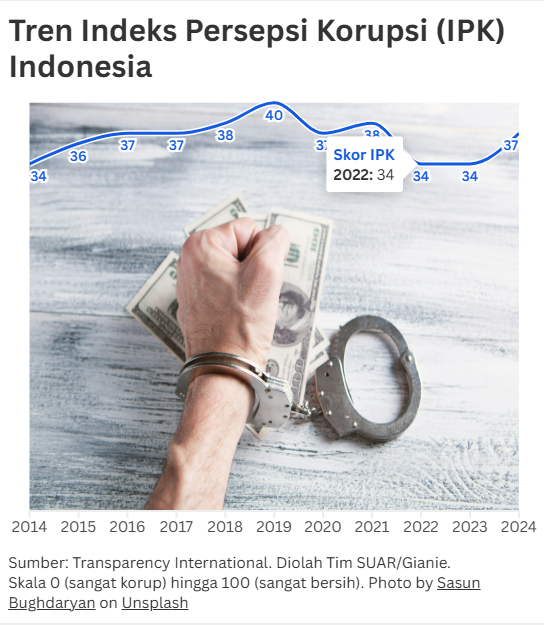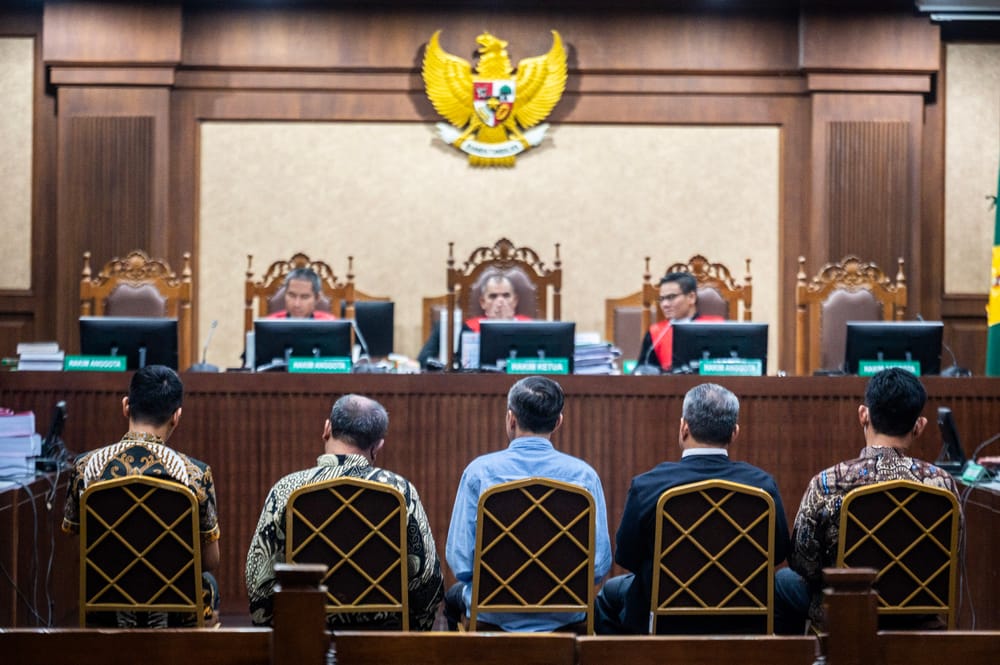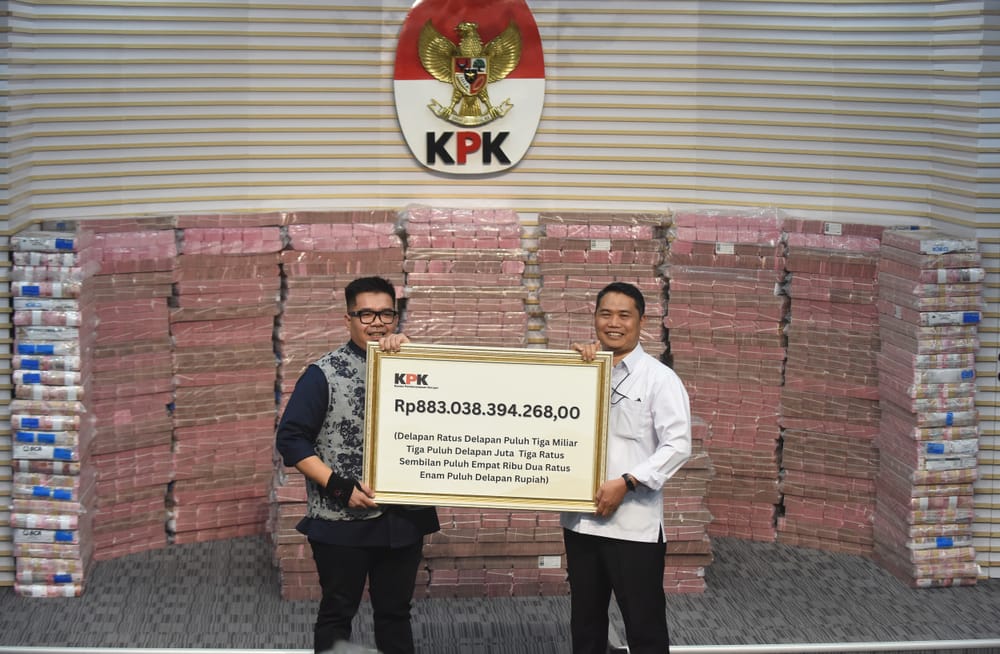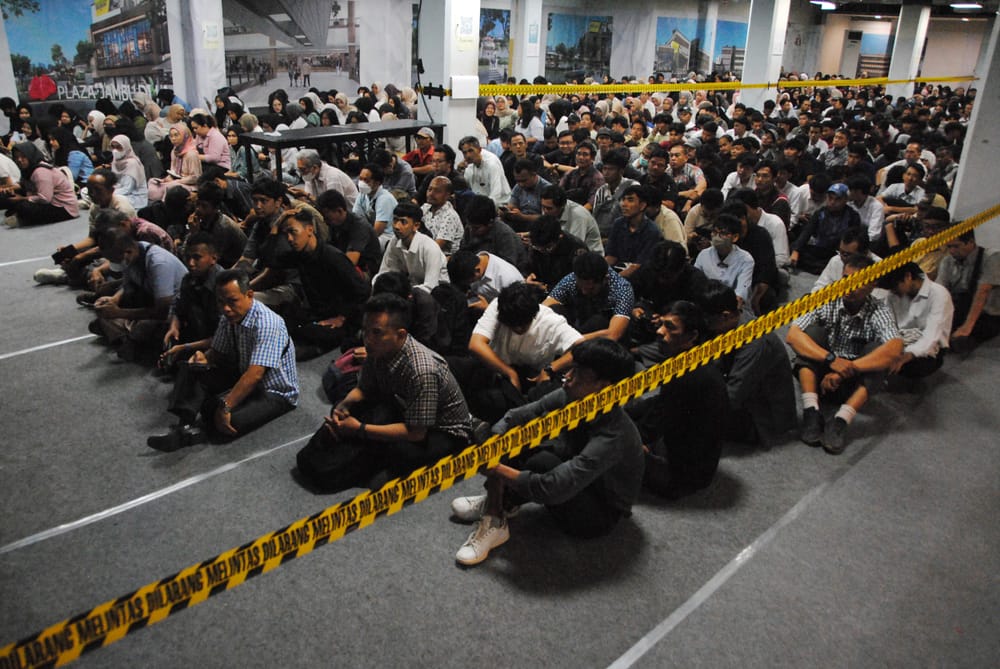The SUAR team explores the thoughts of company leaders, regulators, and economic observers in an effort to play a role in developing UMKM through the Business World Universal Survey. The survey, which took place from July 22 to August 7, 2025, produced several interesting findings that deserve to be followed up by stakeholders.
Highlights:
- As many as 40% of respondents stated that UMKM actors find it difficult and very difficult to get access to financing (credit) to banks.
- Factors that make it difficult for UMKM to obtain credit from banks include the absence/limitation of collateral, lack of information regarding credit, low financial literacy of UMKM actors, complicated regulations/administration, the unfeasibility of UMKM businesses, and resistance from banks.
- Regulatory reform is absolutely necessary (80%).
- UMKM players need to partner with large companies to obtain credit from banks (73.3%).
- Collateral diversification is necessary (86.7%).
- The three factors that determine whether UMKM can develop are: ease of access to credit (financing), promotion/marketing and market expansion strategies, and good business management/operations.
Micro, small, and medium enterprises or UMKM in Indonesia have proven to have a significant role from time to time. Given their large number and the tenacity of their actors, UMKM are the backbone of the economy and have proven to be resilient in times of crisis.
The dynamism of UMKM has supported many families and contributed to national economic growth.
The Ministry of UMKM of the Republic of Indonesia stated that, based on data from the Central Statistics Agency, the current number of UMKM is 65.5 million units, capable of absorbing 119 million workers. This figure is more than half of the total workforce in Indonesia, which reaches 153 million people. The UMKM sector contributes 61.9% to the gross domestic product (GDP).
Nevertheless, UMKM still face major challenges, including limited access to financing, low productivity, uneven digitalization, and weak market networks and partnerships.
Regarding access to financing, the results of the SUAR Team's survey of a number of company leaders, regulators, and economic observers revealed the opinion that, in general, UMKM players actually find it quite easy to get access to financing (60%). However, another 40% think that UMKM players still find it difficult, even very difficult, to reach access to financing.
Looking at Bank Indonesia's data, as of June 2025, the amount of UMKM credit that has been disbursed is Rp 1,506.85 trillion. This amount increased by 76% compared to 10 years ago. On average, UMKM credit grows 7.4% per year.
When viewed based on the scale of the business, micro business credit gets the largest portion of credit, namely 43.43%. Furthermore, the portions of credit for small and medium scale are 34.36% and 22.21% respectively.
The distribution of micro-scale credit during the 2017–2024 period grew higher compared to the other two business scales. That is, an average of 18.3% per year. The highest growth ever occurred after the Covid-19 pandemic, namely in 2021 by 57.74%.
Meanwhile, small-scale credit in the same period grew by an average of 8.98% per year. Meanwhile, medium-scale credit grew smaller and tended to decline, with an average of –1.49%. Due to the pandemic, for three consecutive years (2021–2023) the growth of medium-scale business credit contracted consecutively -23.86%, -5.88%, and -4.30%.
Even though the nominal disbursement of UMKM credit tends to increase, the survey sources assess that there are still UMKM players who have difficulty getting credit from banks. The factors that cause this difficulty vary.
The majority of respondents stated that the factor that makes it difficult for UMKM players to obtain credit from banks is the problem of the absence or limitations of collateral owned by UMKM players (26.7%). Furthermore, there is also the factor of credit information that is not known by UMKM players (16.7%) and the low financial literacy and digitalization of UMKM players (16.7%).
Difficult rules or administration are also a reason (13.3%); starting from difficult requirements to long credit disbursement times.
Another reason that also emerged was the condition of a business that was not feasible with minimal resources, as well as legality issues so that it did not get trust from the bank (13.3%). In addition, there are also banks that are too selective or picky in distributing credit, to setting high interest rates (10%).
To overcome these limitations in access to financing, as a solution, the sources agreed that regulatory reform needs to be carried out. In addition, UMKM players need to partner with large companies for ease of obtaining credit from banks. Another solution is to diversify collateral to make it easier for UMKM players.

Regulatory reform
The majority of sources are of the opinion that regulatory reform needs to be carried out to make it easier for UMKM players to obtain credit from banks (80%). The main reason is to simplify the rules for the convenience of UMKM players in taking care of credit administration (41.7%).
This refers to one of the factors causing UMKM players to have difficulty obtaining credit as explained previously. The convenience in question seems to be related to the number of requirements, the length of the procedure, the length of processing, and other administrative aspects.
The next reason is that there must be policy breakthroughs that are more suitable or in accordance with the conditions of UMKM (33.3%). This ultimately also relates to providing convenience to UMKM players.
Another reason is the opinion that UMKM have great potential for the national economy so there must be partiality towards UMKM (16.7%). And, to make UMKM a more professional entity (8.3%). UMKM as a business entity has the potential to drive the economy, increase employment, encourage entrepreneurship, and develop the creative economy.
However, this regulatory reform still needs to refer to good business governance (good governance).
A small portion of the sources (13.3%) believe that regulations related to UMKM are unnecessary, considering the existing regulations are adequate. What needs to be done is better socialization, so that it can provide a better understanding for umkm when they want to expand and need additional capital.
In addition, sources also believe that for the development of UMKM, what needs to be done is to provide guidance and empowerment so that umkm can manage their businesses better and be sustainable.
Capital is not always the main thing to be able to develop. Mapping the market and mitigating risks also needs to be done at the beginning of building a business in order to survive and be sustainable.
UMKM actors partner
The second solution that can be done so that umkm can easily get credit from banks is to partner with large private companies. This opinion was expressed by 73.3% of respondents. The main reason is that private companies, especially large companies, can become mentoring partners or foster parents for an UMKM (31.8%).
This refers to the foster parent/guardian concept that has been running so far. Large companies can also act as off takers by buying UMKM production. This foster parent-UMKM relationship is usually based on the principles of mutual need, trust, strengthening, and mutual benefit.
Through partnerships with large private companies, UMKM have a greater opportunity to gain access to financing (22.7%). Large companies can become collateral guarantors for UMKM. Thanks to partnerships with established companies, UMKM will also get better information and market access for marketing and product development as well as their businesses (18.2%).
UMKM can become part of the large company's supply chain or industry supply chain. This relationship is also believed to provide better business certainty so that UMKM can increase their credibility and professionalism so that their business can be sustainable (13.6%).
UMKM can become part of the large company's supply chain or industry supply chain. This relationship is also believed to provide better business certainty.
There are many success stories of large companies successfully fostering UMKM, although sometimes this fostered relationship is only part of the company's social responsibility (CSR). However, not all private companies want to foster UMKM.
Private companies are selective in this relationship and sometimes expect incentives from the government if they become partners for UMKM. This opinion was expressed by 9.1% of respondents.
Meanwhile, sources who believe that umkm do not need to partner with private companies have their own reasons. According to them, UMKM must be independent (42.9%).
Another reason is that the relationship between foster parents/guardians and UMKM is feared to be difficult to succeed/sustain (28.6%). In fact, it has the potential to create new problems, such as exploitation of UMKM (28.6%).
Collateral diversification
Another solution that can be done so that umkm can easily get credit from banks is to provide more diverse alternative collateral to business actors. Or, in other words, diversify collateral. The majority of sources stated this (86.7%).
Collateral is crucial when applying for credit to a bank. Collateral diversification is needed to provide convenience for umkm, especially related to the type and scheme of financing (44%).
Collateral does not have to be in the form of objects or assets (28%). Because, umkm have limited collateral, so it should be adjusted to the conditions or capabilities of umkm (16%). Thus, it is hoped that umkm can develop further.
Property assets, motorized vehicle assets, and assets in the form of machinery or production equipment are the three largest types of collateral that can be used as collateral to banks. However, for flexibility, other things that can be used as collateral include products or projects from the UMKM itself and invoice or bills for sales orders. Diplomas are also advised to be used as collateral in banks.
Three Factors that Make UMKM Thrive
Efforts to develop UMKM are continuous efforts that have been carried out since the past. In accordance with the great potential of this business, building and developing UMKM means building the Indonesian economy.
The Semesta Dunia Usaha survey concludes that there are three main factors that make UKM develop.
- First, promotion, marketing, and market expansion strategies (26.7%).
- Second, ease of access to financing or ease of obtaining credit for business expansion (23.3%).
- Third, business management that is run well by umkm (16.7%).
In addition to these three main factors, the internal factors of the umkm also determine. How the mindset and mentalset that individuals have in building a business from planning production, producing, mapping the market, distributing products, to mitigating risks will determine whether a business will survive in the long term and be able to expand.
Product creation and innovation also determine the extent to which a brand or brand is accepted by the market. Not only accepted, but also 'sought after' by the market. This is also a determining factor for UMKM to develop.
In today's technological and digital era, umkm must also be able to utilize technology and digital to increase competitiveness and develop their businesses. Umkm must now be digitally literate.
In addition to the many factors above, tax incentives are also needed by umkm, especially for those who are just starting a business, to be able to survive and develop their business.
According to the Ministry of UMKM's website, there are six strategies implemented to develop UMKM. These strategies include expanding market access, increasing the competitiveness of products and services, developing business capacity and management, and accelerating financing and investment.
Other strategies include facilitating ease and opportunity in doing business, and cross-sector coordination.
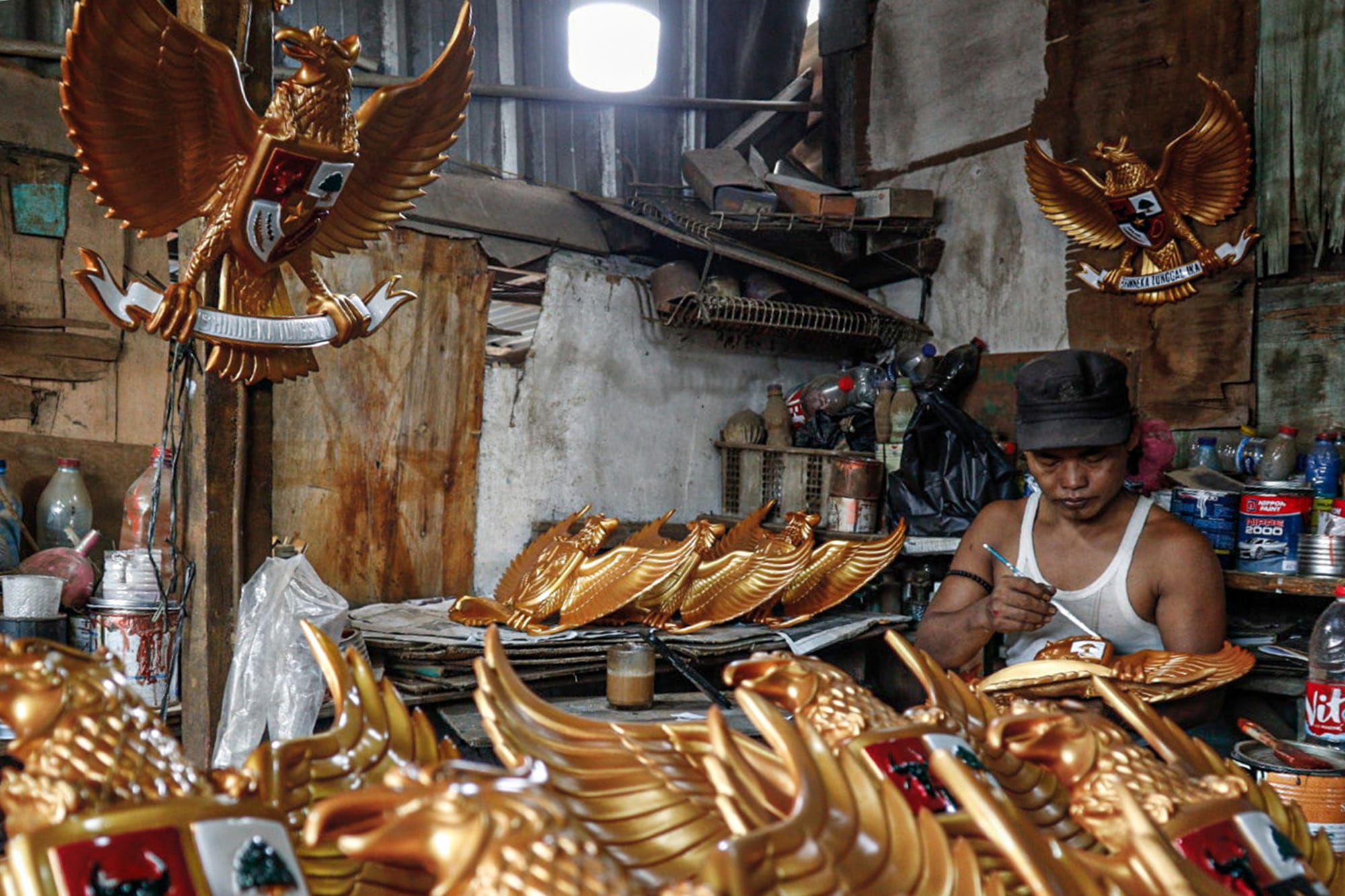
Survey methodology and profile
The Semesta Dunia Usaha survey was conducted from July 22 to August 7, 2025. The sources (respondents) came from the business community, regulators, and economic observers. From the business community, the positions of the sources varied, ranging from directors, presidents directors, to owners. From the regulators, there were regional heads and members of parliament.
Sources in this survey were selected using purposive sampling.


